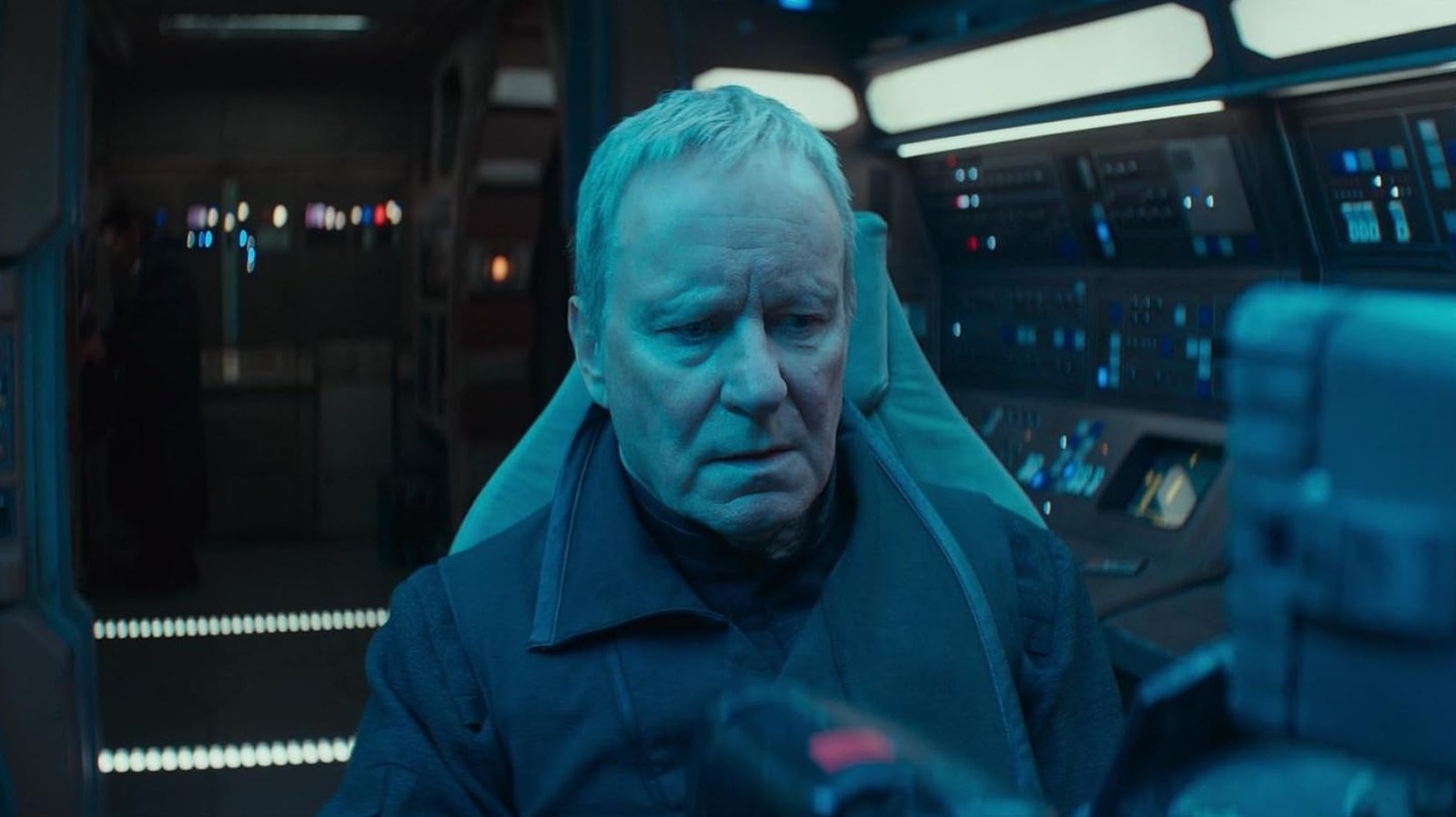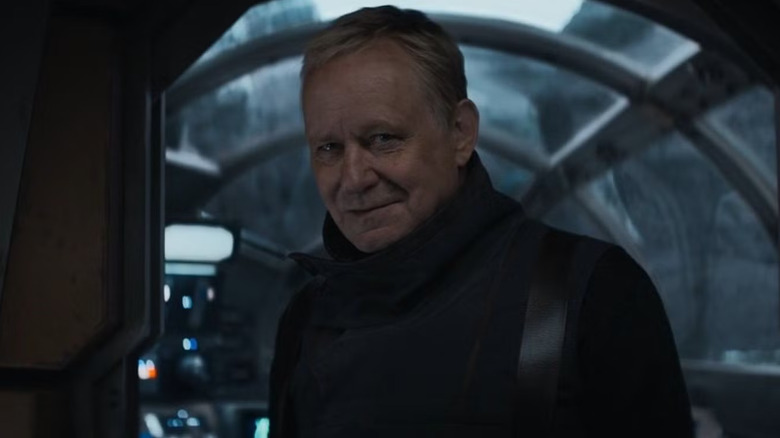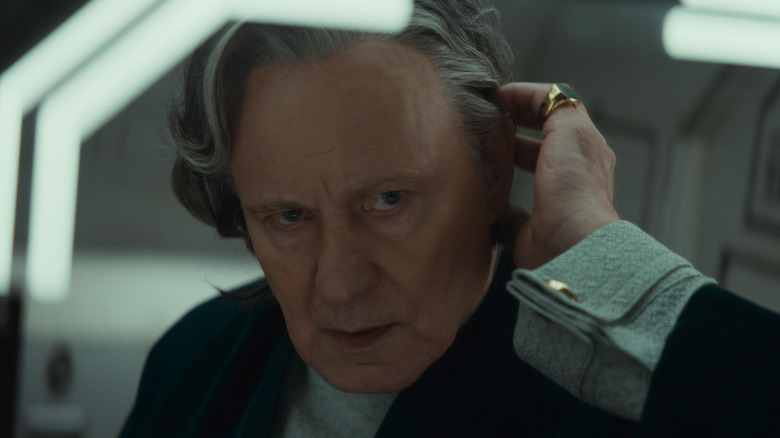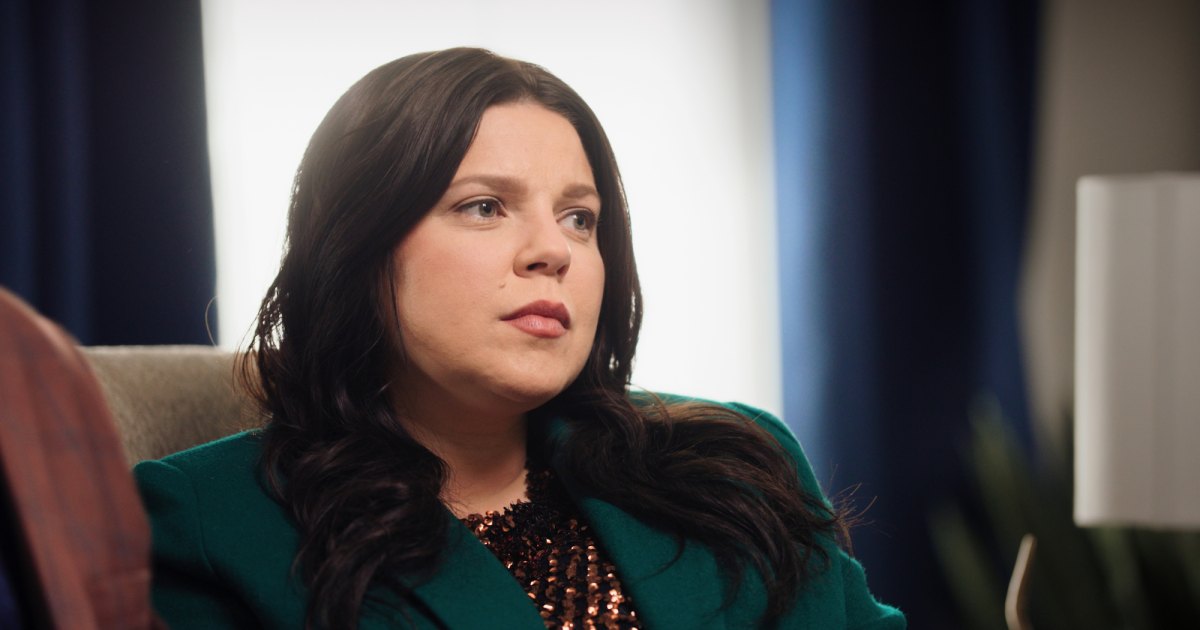Andor Season 2 Episode 6 Offers A Gripping Successor To The First Season’s Best Moment
This article contains spoilers For “Andor”.
When “Star Wars: Episode IV – A New Hope” by George Lucas was released in 1977, this gave generations of dreamy children to join the rebellious alliance and fight the forces of the evil empire. Due to the fact that it was a two -hour film, the idea that we could join the rebels seemed quite simple, and therefore the fantasies they triggered were also without adorcation. While the franchise continued during the decades, this concept “Good Guys vs Bad Guys” continued to be developed, subvert, examined and completely deepened by a certain number of filmmakers, the least of which was not itself. As these generations of fans have grown (finally, as most of them grew up, anyway), as well as “Star Wars” himself, realized that joining and / or starting a rebellion is not a simple task.
Advertisement
That’s why The monologue delivered by Luthen Rael (Stellan Skarsgǎrd) in season 1, episode 10 of “Andor” from Disney + is one of the most vibrant and more vital of all the “Star Wars” franchise. It is not only that the performance of Skarsgård is electric, nor that the dialogue of Rael (written by Beau Willimon) is as good as everything that Obi-Wan Kenobi or Yoda has ever said. It is that Rael, one of the architects of the rebellion who works tirelessly behind the scenes, explains to the public via a rebellious spy within the Empire, Lonni Jung (Robert Emms), exactly what the real political and moral conviction means. To summarize: It’s not easy, it’s not simple, it’s not nice and he has no reward. It is a monologue on the nature of the sacrifice in general, but it also brilliantly spends one of the most difficult truths: in order to make a better future, you must be ready to accept and understand the fact that you will never see it.
Advertisement
Thanks to the monologue so well received, journalists asked Skarsgård during the period “Andor” season 2 If there could be a new monologue that Luthen will deliver, And the actor said quite frankly that there will not be. If it is true that “Andor” does not try fate by trying the monologue, there is a moment in the new season which actively reminds him, and it is not surprising that it is one of the best scenes in the series.
Luthen Lit Andor the Rebel Act
In the sixth episode of “Andor” season 2 (entitled “What a festive Evening” and also written by Willimon), Cassian Andor (Diego Luna) confronts Luthen with the latter’s Antiquity Front. Andor is furious that Luthen previously tried to move if Bix (Adria Arjona) could be able to take a mission for the cause (while Disney + subtitles refer to the emerging rebellion) despite its fragile mental state and its booming drug addiction. Even if Andor is in love with Bix, his fury also stems from Luthen’s fanatic devotion to his work above all. When he is confronted with this, Luthen launches the former ultimatum of Andor of “Kill Me or take me” opposite and take the opportunity to educate Andor on the harsh realities of engaging in a cause in the same way in the way he explained to Jung the previous season.
Advertisement
Although Luthen’s replica to Andor does not come in the form of a monologue but rather of a stormy dialogue between the two men, there is no doubt that this scene is a resumption of the moment of season 1, because it is doubled the beliefs of Luthen and illuminates the most pragmatic and idealistic and idealistic. Even if Andor has undeniably gone through difficult times and suffered a great loss, his assertion that he gave Luthen “everything” does not impress a man who said “I burn my life to make a sunrise that I know that I will never see”. To be honest, the scene is not quite the breathtaking time that Luthen’s monologue was, but it is a key scene of the season (especially retrospectively of the season as a whole), and this gives Skarsgård a Willimon dialogue more wonderfully rich to chew. In response to the naive commentary of Andor according to which those under Luthen use “are not droids”, the cold and the fact that the elders are very old respond to the facts: “We are not who we were when we started.”
Advertisement
Luthen’s commitment to his philosophy is a Star Wars tradition
The scene occurring when it – in the middle of the season – also highlights its status as a point of the spectacle. Although “Andor” is essentially a series of sets, its title is not an unfit term, because the majority of the show is centered not only and itself but also its ideological transformation of a disjointed thief into a man Literally and figuratively willing to die for the cause in “Rogue One”. Luthen is Andor’s figure of mentor, and although There is only one of the many in “Star Wars”, “ These characters tend to be rigid in their beliefs in order to better transmit their knowledge to their apprentices. (Think of Luke Skywalker and Obi-Wan Kenobi, Anakin Skywalker and Dark Sidious, Rey and Luke, and so on.) It is in this frustrating rigidity that the emotionally torn apprentices find their own paths. Not coincident, it is also a metaphor for parents and their children. Most of us fight against our parents in our youth, and even if we grow ironically to be similar to them, we differentiate ourselves enough to finally become our own person.
Advertisement
So many people who love “and confess” a variation in the feeling that the show makes them love “Star Wars” again. The reason is that writers and showrunners behind the series have an in -depth understanding of what “Star Wars” is at the base, and the aforementioned Luthen scene is a sterling example of this understanding. As I said earlier, most young people began to take advantage of “Star Wars” for its surface attributes, and there is nothing wrong with that. However, under all space battles and thrills of fictional inspiration is a play of recurring morality, that which Lucas codified with the word on a “clear side” and “dark side” to blur these lines later.
Advertisement
“Star Wars” is a parable that constantly launches the drama of characters from the outsiders forced to count with impossible obstacles, whether literal or ideological. Many rebels of “Andor” devote themselves to the awareness that they need Luthen, and it is ironic that “Andor” and “Star Wars” are itself a Luthen in the same way – a character whose morality is questionable but which has nevertheless engaged on a path. The way this scene galvanizes and Luthen and Luthen to react can already be seen in the rest of the episode itself, and it will continue to resonate throughout the series. It may not be as seeing as a monologue, but the scene is a big drama, and it’s great “Star Wars”.
New episodes of the first “Andor” on Tuesdays at 9 p.m. HNE on Disney +.














Post Comment